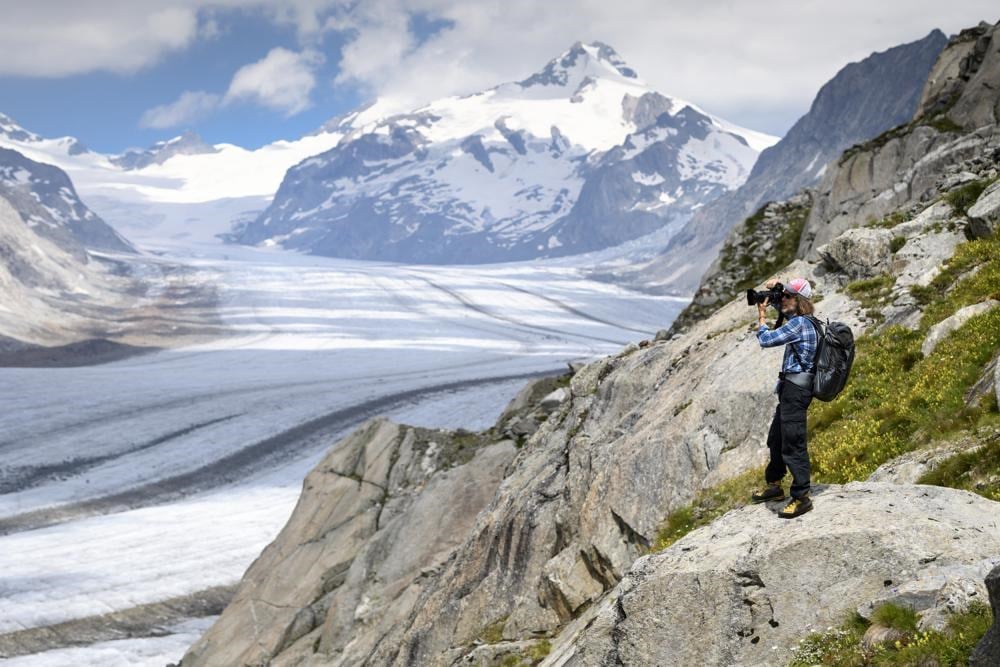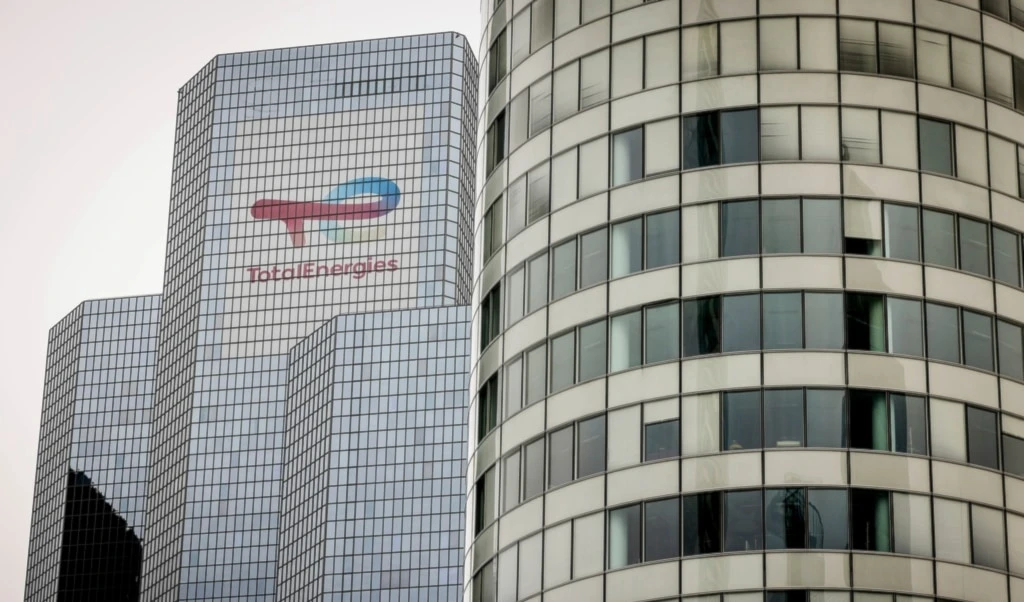As country's glaciers melt, Switzerland eyes new climate law
The referendum, one of many topics up for a vote on Sunday, is over a proposed law that would require Switzerland to reduce its reliance on foreign oil and gas imports.
-

In this July 21, 2020 file photo, Swiss photographer David Carlier takes photographs of the Swiss Aletsch glacier, the longest glacier in Europe, in Fieschertal, Switzerland. (AP)
The Swiss are set to vote in favor of a new climate law on Sunday in order to quickly move the nation toward carbon neutrality, as a result of the impact of global warming on their melting glaciers.
The referendum, one of many topics up for a vote on Sunday, is over a proposed law that would require Switzerland to reduce its reliance on foreign oil and gas imports and to increase the development and use of greener, more domestically produced alternatives.
The law, which would also require Switzerland to achieve carbon neutrality by 2050, has substantial strong public backing, though it has seen support slip in the latest survey to 63% in favor.
The largest party in Switzerland, the populist right-wing Swiss People's Party (SVP), has stepped up its appeals to voters to reject the law, claiming that it might hurt the economy.
Supporters stress the necessity of greater energy independence, as well as the need to confront the effects of climate change, which are best illustrated by the catastrophic melting of the Swiss Alps glaciers, which lost a third of their ice volume between 2001 and 2022.
It is worth noting that three-quarters of the energy used in the prosperous Alpine nation is imported, and all the oil and natural gas used there is from other countries.
Tax rate and referendum
The proposed "Federal Act on Climate Protection Targets, Innovation, and Strengthening Energy Security" eyes reducing the dependence on other countries and also cutting environmental pollution.
The rule was presented by the government as a countermeasure to the Glacier Initiative, a campaign by environmentalists calling for a referendum on a complete ban on the use of oil and gas in Switzerland by the year 2050.
The government opposed the concept of a ban but came up with a counterproposal that included other components of the program.
The article pledges financial assistance of two billion Swiss francs ($2.2 billion) over a ten-year period to support the adoption of climate-friendly heating alternatives in place of existing gas and oil heating systems, as well as assistance to encourage enterprises to adopt green innovation.
Nearly all of Switzerland's major parties support the bill, except the SVP, which triggered the referendum under the country's direct democracy system against what it dismisses as the "electricity wasting law."
The SVP says the bill's goal of achieving climate neutrality in just over a quarter-century would effectively mean a fossil fuel ban, which it warns would threaten energy access and send household electricity bills soaring.
In 2021, the party was successful in opposing a measure that would have limited greenhouse gas emissions.
But there has been a growing push for Switzerland to reduce its reliance on foreign energy sources after the war in Ukraine brought into question Swiss access to much of the foreign energy the country uses.
Read next: Climate activists protest 'green capitalism', clash with Swiss police

 3 Min Read
3 Min Read










